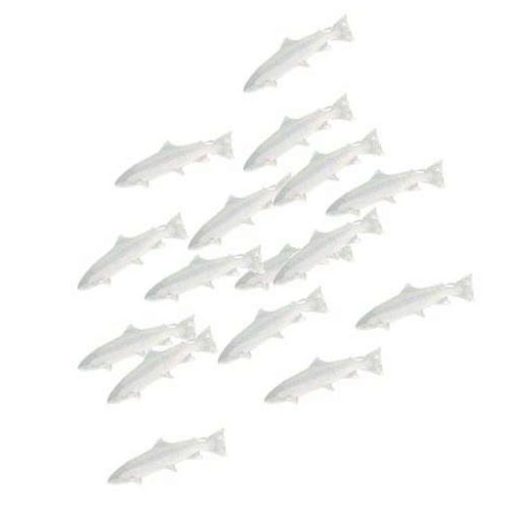Indigenous intellectual tradition is the primary focus of our film production. Since 2001 we have worked with local communities, primarily on BC’s north coast but also in France and Ireland, to produce documentary films that resonate with local communities first, academic audiences second. A selection of these films can be viewed on our Vimeo page, and a few of those are provided here.
Basketball Warriors: Stories of Aboriginal Basketball on Canada’s West Coast
Basketball is a big thing in most coastal aboriginal villages in British Columbia and Alaska. Every community has at least one gym where you can hear the sounds of the ball bouncing, kids shouting and screaming, and the swish of the ball through the hoop. This film tells the story of basketball players from Gitxaala Nation, the importance of the game, it’s history on the north coast, and tales of big games past and present at the BC All Native Basketball Tournament held each year for more than 50 years in Prince Rupert, BC.
To Walk in Our Ancestors Footsteps
Mati (Mountain Goat) are important in the social and ecological lives of Gitxaała Nation. In this film we explore the unique community of Mati that live in the island territories of Gitxaała Nation. This film is part of a five year study of living in our Indigenous territories alongside of our relatives and in the footsteps of our ancestors.
Small Nets in a Sea of Change: Family Fishing in Donegal, Ireland
Working in collaboration with local small-scale salmon and lobster fishermen in the north west of Ireland this film documents the vitality and history of local fisheries.
Bax Laansk: Pulling Together (a film about Gitxaała)
Bax laansk, roughly translated, is the ability to do together what cannot be done alone. Bax Laansk tells the contemporary story of Gitxaała people finding strength and wealth in the face of the impacts of colonialism and expropriation of their territory. The film was screened in Gitxaała in May, 2009, during the 2009 CASCA conference at UBC, in Philadelphia as part of the American Anthropological Association meetings, December, 2009, and as part of the Tofino Indigenous Film Festival, May 2010.
Chasing the Fish: Local Knowledge of the North Coast
As a counter point to the science-based systems of knowledge relied upon by government agencies, this video explores the ways in which small-scale fishers from Prince Rupert make sense of the way fish behave. It reveals the wealth and depth of fishers’ knowledge. We learn the ways in which fishing gear, technology and regulations intersect with fishers’ experiences to create a dynamic knowledge that resource managers need to take into account if resource management plans are to be truly effective. This video is useful for classes in: Traditional Ecological Knowledge, Resource Management, Fisheries.
Fighting to Fish (Un Siecle de Lutte)
Adapted from Dr. Charles Menzie’s book “Red Flags and Lace Coiffes”, this film uses animated archival images to tell the turbulent history of industrialization and resistance over the last century in the French fishing region of Brittany. This story illustrates the Bigouden fishers’ determination to defend their way of life through direct action within their borders and strategic organizing internationally. This video is used in the classroom and also serves to solidify ties with international colleagues, research subjects and fish harvesters’ associations. Screened at American Anthropology Association’s Film Festival, Washington DC 2005. This video is useful for classes in: French History, Resource Management, and Political Economics.
Oona River: Between Forest and Sea
Tucked away on BC’s rugged North coast, 20 miles south of Prince Rupert, lives one of the last homesteading communities. Meet three generations of Oona River residents, who use their skills, adaptability and practical environmentalist approach to live richly and harmoniously in a land with no grocery store, no restaurant and no road to the mainland. Their biggest challenge for survival is not the long winters or the bears, but the provincial government’s capital-intensive policy decisions on logging and fishing that may just regulate Oona River out of existence. The video introduces viewers to Oona River residents, local history, and the economic and ecological foundations of the community, and is suitable for classes in Resource management, Canadian history, British Columbia history, Community economic development. Oona River was screened at The Planet in Focus Environmental Film Festival, Toronto 2004.
The View from Gitxaała and Returning to Gitxaała
The films won an award at the 2005 American Anthropological Association Film Festival, held in Washington DC. In the past, outside scholars and government officials have exploited First Nations communities for their stories, cultural artifacts and expert knowledge of the local resources. The Forest for the Future team is determined to change that legacy. These two documentaries tell about the collaborative research project between University of British Columbia anthropologists and the Gitxaała Nation– the indigenous inhabitants of the coastal archipelago that stretches more than 100 miles south from the mouth of British Columbia’s northern Skeena River.
The videos outline the rationale and process of this research process that recognizes and respects Tsimshian protocols. They provide insight into the feelings and perspectives of both the academics and community members.
These videos were filmed in collaboration with the University of British Columbia anthropology team and with the Gitxaała Nation. These videos are suitable for classes in Anthropology, Visual anthropology, Documentary ethics, First Nations Studies, Research Ethics.

